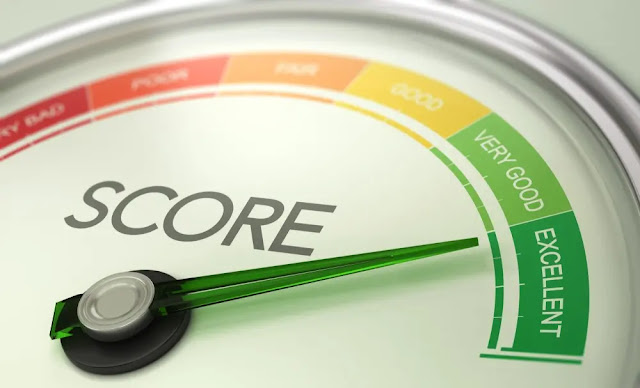If you're dreaming of buying a new home, one thing stands between you and your dream: your credit score. A good credit score is your key to qualifying for a mortgage, making it essential for prospective homeowners. But what if your credit score is less than ideal? How long will it take to elevate it to a level where buying a home becomes a reality? Let's dive into the world of credit repair and discover the steps to make it happen.
How Long Does it Take to Improve Your Credit Score?
Before we embark on our credit repair journey, it's essential to understand the basics. Credit scores can be categorized into good and bad scores, with a score of 649 or below considered a low score. Typically, lenders seek a credit score of 660 or higher before granting a mortgage. If you're eager to fast-track your credit score improvement, here are some steps to get you started.
Fix Errors in Your Credit Report
One swift method to boost your credit score is by correcting errors in your credit report. If the issue is a simple case of mistaken identity, like a credit card that doesn't belong to you, you can resolve it within one to two months. However, if the error is related to one of your accounts, the process might take longer since it involves both your creditor and the credit bureau.
The entire correction process typically spans between 30 to 90 days. Should a lengthy back-and-forth occur between you, the credit bureau, and your creditor, it could take even longer. To begin, acquire free copies of your credit reports from TransUnion, Equifax, and Experian, the three major credit bureaus. Afterward, meticulously review your credit report for errors. In cases where an error is tied to one of your accounts, you must challenge it by providing documents that support your claim. For instance, if you made a timely credit card payment, but the card issuer erroneously reports it as late, provide a bank statement as evidence.
The credit bureaus typically have 30 days to investigate the error. If they acknowledge the mistake, they will remove it from your report. There may be instances where they request additional information or ask you to engage with the creditor involved. If that happens, stay vigilant and maintain clear communication with your creditor to resolve the issue as swiftly as possible.
Establish a Credit History, if Necessary
Sometimes, a low credit score simply indicates that you haven't demonstrated enough creditworthiness to potential lenders, at least not in a way that's visible on your credit report. In such cases, consider opening a credit account, such as a credit card, and make regular payments. The key here is to be cautious—avoid overspending or using this as an excuse to take out unnecessary loans.
For instance, you can opt for a secured credit card and use it for everyday expenses like gas. To prevent accruing high interest or accumulating credit card debt, closely monitor your balance throughout the month and ensure it's paid off in full every month.
Address Overdue Accounts
If you're struggling with bad credit, tackling delinquent accounts and settling collection accounts can rapidly boost your credit score. Once the creditor or collection agency reports the account update, you should observe an increase in your score.
Nevertheless, it's vital to keep in mind that your late payment history will remain on your credit report for seven years. If you have questionable accounts that have been on your report for six years or more, it might not be worth the effort to fix or update them. In this case, you can choose to let the account lie dormant, as it will automatically be removed after seven years.
Reduce Your Credit Utilization Rate
Your credit utilization ratio is the amount you owe compared to your available credit. For example, if your credit cards have a total limit of $10,000 and your balances add up to $9,000, you've used 90% of your available credit, which can negatively impact your credit score.
Scores are updated continuously, and creditors usually report once a month. If you make a payment that significantly lowers your credit usage, it should reflect in your credit score within two months.
Conclusion
Improving your credit score is not an overnight feat. It requires diligence and patience, but with the right steps, it's possible to enhance your creditworthiness and reach a level where homeownership becomes attainable.
FAQs
How long does it take to fix errors in a credit report?
Correcting errors in your credit report can take between one to two months for simple mistakes of identity, and longer for errors related to specific accounts.
Is it necessary to establish a credit history for better credit?
If you lack a credit history, opening a credit account and making regular payments can help build your creditworthiness.
Can addressing overdue accounts significantly boost your credit score?
Yes, tackling delinquent accounts and settling collection accounts can lead to a rapid increase in your credit score.
What happens if you don't address questionable accounts on your credit report?
Questionable accounts that have been on your report for six years or more will automatically be removed after seven years.
How quickly can a lower credit utilization rate affect your credit score?
Making a payment that reduces your credit usage should reflect in your credit score within two months.







0 Comments